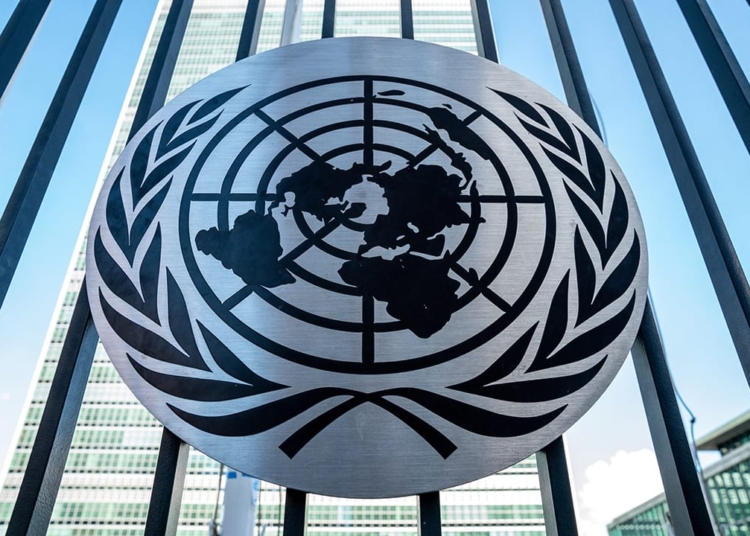In today’s rapidly changing world, emerging threats and security challenges have become a pressing concern for militaries around the globe. With the advancement of technology and shifting geopolitical landscapes, military experts are tasked with finding effective strategies to address these challenges head-on. In this article, we will delve into some of the key emerging threats and security challenges identified by military experts and the measures being taken to mitigate them. One of the most significant emerging threats is the rise of cyber warfare. As our society becomes increasingly reliant on technology, both military and civilian infrastructure are vulnerable to cyberattacks from state-sponsored actors, terrorist organizations, and even lone individuals. The article also discusses countermeasures being taken, such as investing in cybersecurity protocols and research and development. The rise of non-state actors and unconventional warfare tactics, such as insurgency and terrorism, present new challenges for military forces. Adaptive strategies, intelligence gathering, and information sharing are crucial countermeasures to effectively combat these threats. Disinformation and information warfare, as well as the rapid advancement of emerging technologies, are also explored in the article. Efforts to combat disinformation include media literacy education and collaboration with social media platforms. With emerging technologies, military experts advocate for strong regulations and partnerships to harness the benefits while mitigating risks. In conclusion, military experts are continuously evaluating emerging threats and security challenges to ensure preparedness and effective response, striving to safeguard national security and protect citizens.
Emerging Threats and Security Challenges: Military Experts Weigh In
Introduction
In today’s rapidly changing world, emerging threats and security challenges have become a pressing concern for militaries around the globe. With the advancement of technology and shifting geopolitical landscapes, military experts are tasked with finding effective strategies to address these challenges head-on. In this article, we will delve into some of the key emerging threats and security challenges identified by military experts and the measures being taken to mitigate them.
Cyber Warfare
One of the most significant emerging threats is the rise of cyber warfare. As our society becomes increasingly reliant on technology, both military and civilian infrastructure are vulnerable to cyberattacks from state-sponsored actors, terrorist organizations, and even lone individuals. Military experts acknowledge the potential devastating consequences of a successful cyber attack, which can disable critical infrastructure, disrupt communication systems, and compromise sensitive information.
Countermeasures:
Militaries worldwide are investing significant resources in bolstering their cyber defense capabilities. This includes developing advanced cybersecurity protocols, conducting regular training exercises to enhance cyber resilience, and collaborating with allied nations to share intelligence and best practices. Additionally, military experts stress the importance of investing in research and development to stay ahead of cyber threats.
Unconventional Warfare
The rise of non-state actors and hybrid warfare has introduced new challenges for military forces. Unconventional warfare tactics, such as insurgency, terrorism, and proxy wars, can destabilize regions and pose a significant threat to national security. Military experts emphasize the need for adaptive strategies to counter these threats effectively.
Countermeasures:
Military forces are increasingly adapting to unconventional warfare by incorporating intelligence-led operations, special forces capabilities, and enhanced counterinsurgency tactics into their doctrines. By investing in intelligence gathering, information sharing, and interagency cooperation, militaries can better understand, track, and neutralize unconventional threats before they escalate.
Disinformation and Information Warfare
In the era of social media and instant communication, the spread of disinformation and manipulation of public opinion has become a prevalent concern for national security. Military experts recognize that information warfare can undermine confidence in democratic institutions, incite social unrest, and interfere with military operations.
Countermeasures:
Efforts to combat disinformation and information warfare include educating the public about media literacy and critical thinking, enhancing intelligence capabilities to detect and counter propaganda efforts, and working closely with social media platforms to identify and remove false or misleading content promptly. The collaboration between governments, media organizations, and technology companies plays a crucial role in safeguarding the integrity of information disseminated through digital channels.
Emerging Technologies
The rapid advancement of emerging technologies, such as artificial intelligence, autonomous systems, and biotechnology, brings both opportunities and challenges for national security. While these technologies can enhance military capabilities, they also introduce new vulnerabilities and ethical concerns.
Countermeasures:
Military experts advocate for a comprehensive approach to managing the risks associated with emerging technologies. This includes robust regulations and international agreements to prevent unethical use, ongoing research and development to understand the implications fully, and proactive partnerships with academia and the private sector to harness the benefits while mitigating potential risks.
Conclusion
Military experts are continuously evaluating emerging threats and security challenges to ensure preparedness and effective response. The evolving nature of these threats demands a proactive approach, involving collaboration, innovation, and investment in defense capabilities. By addressing these challenges head-on, militaries worldwide strive to safeguard national security and protect their citizens in an ever-changing global landscape.













